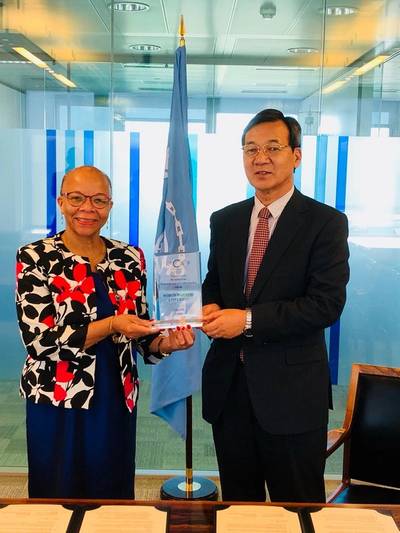ReCAAP ISC, WMU Strengthen in Fight Against Piracy
ReCAAP Information Sharing Center (ISC) and World Maritime University (WMU) has signed a Memorandum of Understanding (MOU) to strengthen the cooperation between the two organizations in the shared interest in increasing the knowledge of the evolving situation of piracy and sea robbery in Asia.
The cooperation will see ReCAAP ISC share its Asian experience in combating piracy and armed robbery against ships with the next generation of maritime leaders pursuing their postgraduate studies at WMU’s campus in Malmö, Sweden, and in turn host visiting students of WMU at ReCAAP ISC on their field studies to Singapore. The partnership will advance the United Nations Sustainable Development Agenda, in particular Goal 4 focused on education, Goal 7 related to energy, Goal 8 regarding decent work and economic growth, and Goal 16 promoting peaceful societies.
“In 2015, ReCAAP ISC delivered the first lecture to students at WMU. Since then, both organizations have had useful mutual exchanges in the promotion of maritime safety and security as a vital topic for maritime leaders. ReCAAP ISC highly appreciates WMU’s shared interest in having their students gain a better appreciation of the piracy and sea robbery situation in Asia, and this MOU provides a framework to deepen our mutual cooperation,” said Masafumi Kuroki, Executive Director of ReCAAP ISC.
Dr. Cleopatra Doumbia-Henry, President of the World Maritime University, stated, “The threat posed by piracy and armed robbery against ships has been a focus of the IMO’s agenda from the early 1980s until today. This MoU with ReCAAP will advance the University’s commitment to supporting IMO’s work and strengthen our mutual effort with ReCAAP in fighting piracy at sea in Asia. The expertise shared by ReCAAP will inform maritime security research at the University as well as educate future maritime leaders from around the globe. It also follows on the heels of the ILO’s recent adoption of Amendments to the MLC, 2006 providing for seafarers to continue to be paid if held captive as a result of piracy or armed robbery against ships, an important milestone in protecting the rights of seafarers.”











